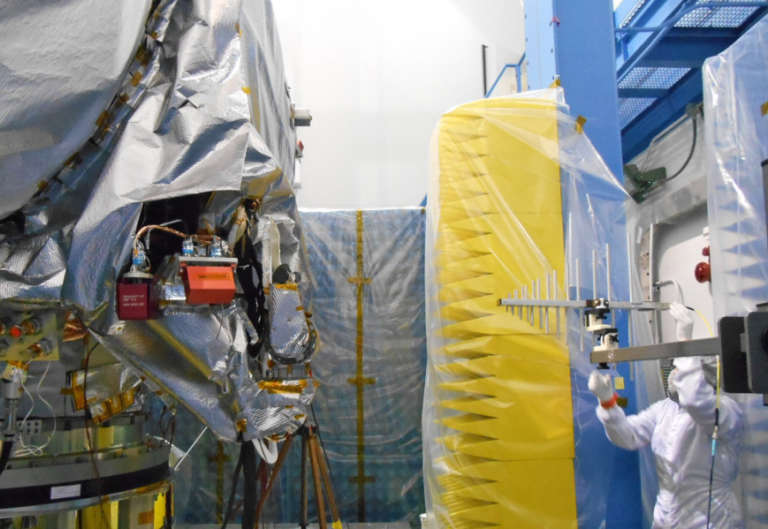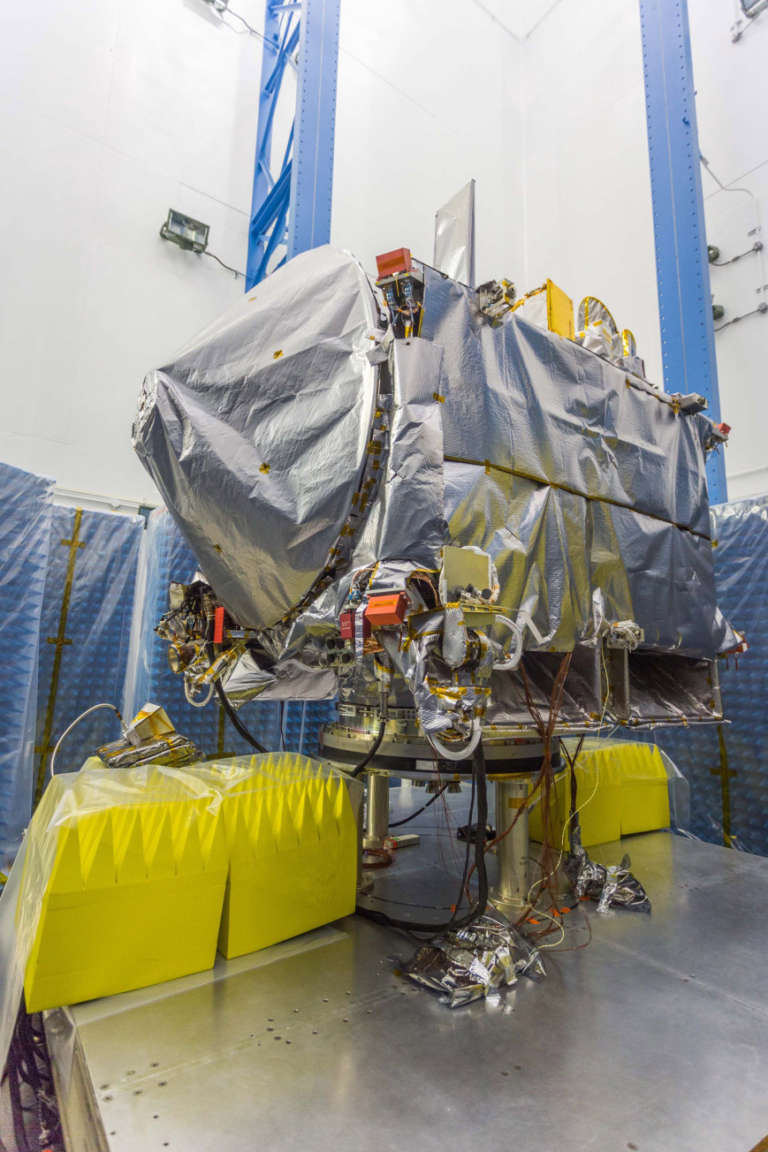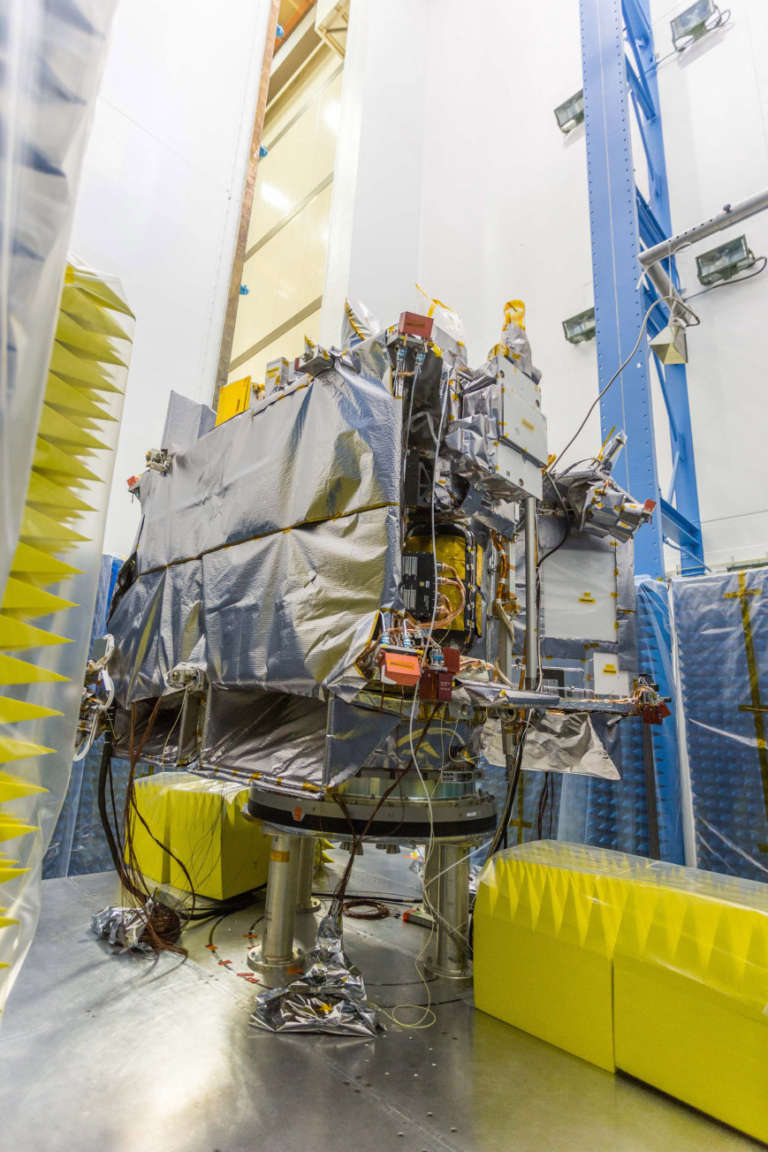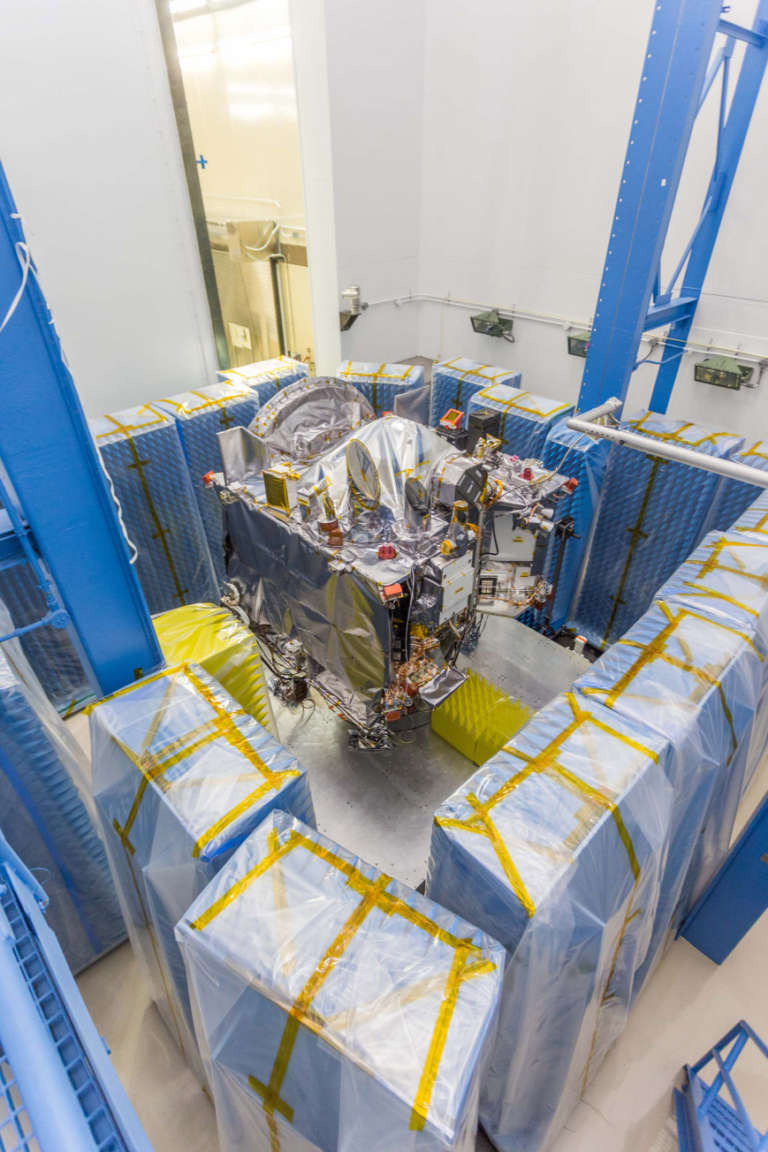Dante Lauretta • Mar 03, 2016
OSIRIS-REx Passes EMI/EMC Testing
This article originally appeared on Dante Lauretta's blog and is reposted here with permission.
The OSIRIS-REx spacecraft has completed the Electromagnetic Interference/Electromagnetic Compatibility (EMI/EMC) system level test. This test has three objectives. The first objective is to test for Radiated Emissions, which are the release of electromagnetic energy from the spacecraft. To pass this test, the team had to verify that the emissions from the Spacecraft do not violate the limit specified for both the Launch Vehicle and the Spacecraft.

The second objective is to test for Radiated Susceptibility, which is the response of the spacecraft to external electric fields. This test verifies that the Spacecraft will perform as required at the launch site, during launch, and during operations in space, when it is exposed to these electromagnetic environments.

The final objective is to test for spacecraft Self-Compatibility, which demonstrates that the spacecraft will not electrically interfere with itself. To pass this test, the team had to verify 1) that the spacecraft operates as expected when it is not connected to any external ground-support equipment; 2) that there is no degradation in receiver (X-band) performance when exposed to the emissions generated by the spacecraft itself; 3) that the individual components on the spacecraft do not interfere with each other when all systems are operating; and 4) that there is no degradation in unit performance while the onboard transmitters (X-band) are transmitting.

This test was performed in the same chamber as the mechanical environmental tests. This facility was modified to create an “anechoic chamber”. The term anechoic can be broken down to “an-echoic”, which basically means that the walls are non-reflective, non-echoing, or echo-free. For this test, we had to create a shielded room whose walls have been covered with a material that scatters or absorbs so much of the incident electromagnetic energy that it simulates free space.

Overall, the test was completed without issue. At one point in the test an unexpected emission in the Global Positioning System (GPS) band was recognized. However, after a bit of troubleshooting, this emission was shown to be within specification. With the EMI/EMC test behind us, the last major environmental test, thermal vacuum testing, is up next. Watch for a future post to describe the results from “T-Vac”.
Support our core enterprises
Your support powers our mission to explore worlds, find life, and defend Earth. You make all the difference when you make a gift. Give today!
Donate

 Explore Worlds
Explore Worlds Find Life
Find Life Defend Earth
Defend Earth

